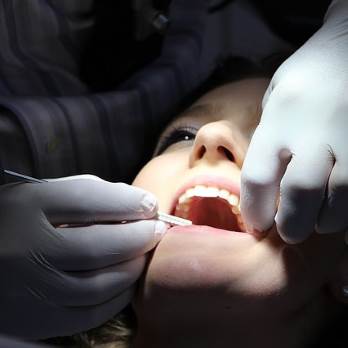Dental Implants for Seniors: Complete Cost and Care Guide
Dental implants have revolutionized tooth replacement options for seniors, offering a permanent solution that looks and functions like natural teeth. As we age, tooth loss becomes increasingly common due to gum disease, decay, and other oral health issues. Unlike traditional dentures or bridges, dental implants provide a stable foundation that can last decades with proper care. This comprehensive guide explores everything seniors need to know about dental implants, from candidacy requirements to financial considerations.

Are Implants for Elderly Patients a Safe Option?
Dental implants are generally safe and effective for elderly patients, with age alone rarely being a disqualifying factor. The key considerations for seniors include overall health status, bone density, and healing capacity. Most patients over 65 can successfully receive dental implants if they maintain good oral hygiene and have adequate jawbone structure to support the implant.
Elderly patients may face longer healing times compared to younger individuals, typically requiring 3-6 months for complete osseointegration. However, success rates remain high across all age groups. Common health conditions like diabetes or heart disease don’t automatically exclude seniors from implant treatment, though they may require additional medical clearance and monitoring throughout the process.
How Much Does a Full Set of Teeth Implants Cost?
A complete set of dental implants represents a significant investment, with costs varying based on the chosen treatment approach. Full mouth reconstruction using individual implants for each tooth can range from $60,000 to $90,000 per arch. However, more cost-effective solutions like All-on-4 or All-on-6 systems typically cost between $15,000 and $30,000 per arch.
The All-on-4 approach uses just four strategically placed implants to support a full arch of replacement teeth, making it a popular choice for seniors seeking comprehensive tooth replacement. This method reduces both treatment time and overall costs while providing excellent stability and function. Additional factors affecting total cost include bone grafting procedures, extractions, and the type of prosthetic materials used.
What Is the Cost of Dental Implants for Seniors?
Senior patients often benefit from various cost considerations and payment options when pursuing dental implant treatment. Single tooth implants typically range from $3,000 to $6,000, including the implant, abutment, and crown. Multiple tooth replacements using implant-supported bridges can cost $6,000 to $15,000 depending on the number of teeth being replaced.
Many dental practices offer senior discounts or flexible payment plans to make treatment more accessible. Some Medicare Advantage plans may provide limited coverage for dental implants, particularly when medically necessary due to accident or disease. Seniors should also explore dental savings plans and financing options specifically designed for major dental procedures.
| Treatment Type | Provider/Location | Cost Estimation |
|---|---|---|
| Single Implant | General Practice | $3,000 - $4,500 |
| Single Implant | Specialist Office | $4,500 - $6,000 |
| All-on-4 (per arch) | Dental Chains | $15,000 - $25,000 |
| All-on-4 (per arch) | University Clinics | $12,000 - $20,000 |
| Full Mouth Individual | Private Practice | $60,000 - $90,000 |
Prices, rates, or cost estimates mentioned in this article are based on the latest available information but may change over time. Independent research is advised before making financial decisions.
Understanding Overall Dental Implant Cost Factors
Several factors influence the total dental implant cost beyond the basic procedure. Geographic location plays a significant role, with urban areas typically commanding higher fees than rural locations. The complexity of each case affects pricing, particularly when additional procedures like bone grafting, sinus lifts, or extractions are required.
Material choices also impact overall costs. Premium implant systems from established manufacturers like Nobel Biocare or Straumann may cost more than generic alternatives but often provide superior long-term outcomes. The type of restoration selected, whether porcelain-fused-to-metal or all-ceramic crowns, will also influence final pricing.
Diagnostic procedures including CT scans, surgical guides, and temporary restorations add to the total investment. However, these elements are crucial for successful treatment outcomes and long-term implant stability.
Long-term Benefits and Considerations for Seniors
Dental implants offer numerous advantages for senior patients beyond aesthetic improvements. They help preserve jawbone structure by providing necessary stimulation that prevents bone loss. This preservation maintains facial support and prevents the sunken appearance often associated with complete tooth loss.
The improved chewing function allows seniors to maintain better nutrition by eating a wider variety of foods. Unlike traditional dentures, implants don’t slip or require messy adhesives, providing confidence in social situations. With proper care, dental implants can last 20-30 years or even a lifetime, making them a worthwhile investment for many seniors.
Regular maintenance involves standard oral hygiene practices plus professional cleanings and periodic implant assessments. Most seniors find the long-term benefits far outweigh the initial investment and recovery period.
Dental implants represent an excellent tooth replacement option for seniors who want to maintain their quality of life and oral health. While the initial investment may seem substantial, the long-term benefits of improved function, aesthetics, and bone preservation make implants a valuable consideration for eligible elderly patients. Consulting with a qualified implant dentist can help determine the best treatment approach based on individual needs, health status, and financial considerations.
This article is for informational purposes only and should not be considered medical advice. Please consult a qualified healthcare professional for personalized guidance and treatment.




